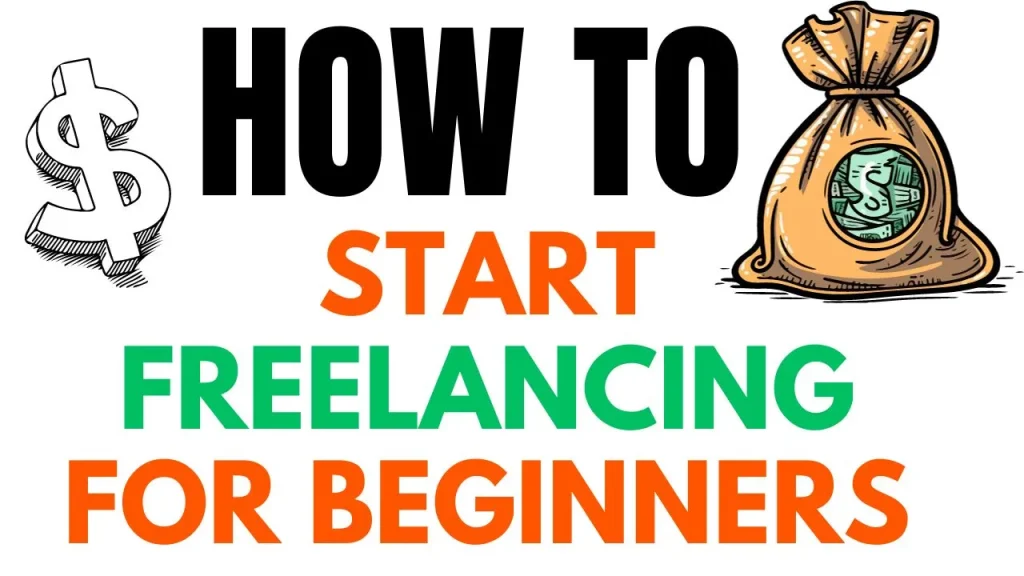Freelancing has become a compelling career choice for many individuals seeking flexibility and diverse job opportunities. In this digital age, the gig economy is thriving, providing a platform for people to showcase their skills and talents while enjoying the perks of self-employment. In this article you will learn how to start freelancing for beginners.
Benefits of Freelancing
Flexibility in Work Schedule
One of the most significant advantages of freelancing is the ability to set your own work hours. This flexibility allows beginners to manage their time effectively and strike a balance between work and personal life.
Diverse Job Opportunities
Freelancers have access to a wide range of job opportunities across various industries. From writing and graphic design to programming and marketing, the options are endless. This diversity enables beginners to explore different fields and discover their passions.
Potential for Higher Income
While freelancing may start slow for beginners, the potential for higher income is substantial. As skills improve and a solid reputation is built, freelancers often find themselves attracting higher-paying clients.
Identifying Your Skills: How to Start Freelancing for Beginners
Before diving into freelancing, it’s crucial to conduct a self-assessment of your skills. Identify your strengths, weaknesses, and areas where you can improve. Recognizing marketable skills is essential for a successful freelancing career.
Building an Online Presence
Creating a professional online presence is key to attracting clients. Develop a portfolio showcasing your best work and utilize social media platforms to reach a broader audience. This establishes credibility and makes you more visible in the freelancing community.
Choosing the Right Freelance Platform
With numerous freelance platforms available, it’s important to choose one that aligns with your skills and goals. Consider factors such as fees, competition, and the types of projects available when selecting a platform.
Setting Up Your Profile
Crafting an effective profile is your first impression on potential clients. Write a compelling bio, highlight your skills, and provide examples of your previous work. A well-crafted profile increases your chances of getting noticed.
Creating a Winning Proposal
Tailor your proposals to clients’ specific needs. Showcase your understanding of the project and highlight relevant experience. A personalized and thoughtful proposal sets you apart from other freelancers vying for the same project.
Setting Competitive Rates
Research industry standards and calculate your worth as a freelancer. Consider your skill level, experience, and the complexity of the project when determining your rates. Setting competitive yet reasonable rates is essential for attracting clients.
Managing Finances
Freelancers need to track their income and expenses diligently. Understanding the tax implications of freelancing is crucial for financial stability. Consider consulting with a financial professional to ensure compliance with tax regulations.
Time Management for Freelancers
Effective time management is vital for freelancers. Utilize tools and techniques to enhance productivity and meet deadlines. Proper time management ensures a consistent flow of projects and client satisfaction.
Handling Client Relationships
Communication is key in freelancing. Establish clear expectations with clients, provide regular updates, and be responsive to inquiries. Professional communication builds trust and fosters long-term client relationships.
Expanding Your Freelance Business
As you gain experience, focus on seeking repeat clients and upselling additional services. Building a loyal client base is a sustainable way to grow your freelance business.
Staying Updated on Industry Trends
The freelance landscape is dynamic, with industry trends evolving rapidly. Engage in continuous learning and skill development to stay relevant. Networking within the freelancing community helps you stay informed about market demands.
Overcoming Challenges to Start Freelancing for Beginners
Freelancing comes with its fair share of challenges. Rejections and balancing work and personal life are common hurdles. Learn to navigate setbacks with resilience and adaptability to ensure long-term success.
Starting a freelancing career can be both rewarding and challenging. By following these steps and staying dedicated to self-improvement, beginners can pave the way for a successful freelancing journey. Embrace the flexibility, seize diverse opportunities, and remember that every challenge is an opportunity to grow.
Raihan Rifat is the Founder & CEO of Powerful Tutorials, with a degree in CSE, and 3 years of experience in digital marketing, including SEO, Facebook Ads, and Google Ads. He is dedicated to helping people gain financial independence by teaching digital skills. Whether you’re interested in blogging, YouTube, affiliate marketing, e-commerce, or freelancing, Raihan’s goal is to guide you in turning your passions into profitable careers.

